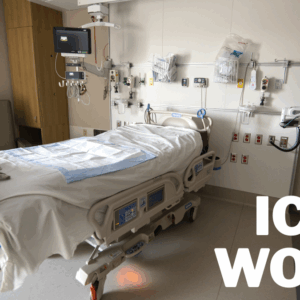Hospitals play a crucial role in maintaining public health and saving lives. However, the average patient may not fully understand the range and structure of hospital services available. From emergency care to specialized treatment and rehabilitation, modern hospitals are complex ecosystems designed to offer a broad spectrum of care under one roof.
This guide provides an in-depth overview of the key hospital services, helping patients and caregivers make informed decisions during critical moments.
Understanding Hospital Services
What Are Hospital Services?
Hospital services refer to the various departments, treatments, and care options offered by a hospital. These services are provided by healthcare professionals including doctors, nurses, technicians, therapists, and support staff. The aim is to diagnose, treat, and manage illnesses and injuries in a safe and controlled environment.
Classification of Hospital Services
Hospital services are generally classified into the following:
- Emergency Services
- Inpatient Services
- Outpatient Services
- Surgical Services
- Diagnostic Services
- Rehabilitative Services
- Support Services
- Specialty Services
Emergency Services
24/7 Critical Care
Emergency services handle life-threatening conditions such as heart attacks, strokes, major trauma, or severe allergic reactions. These services are usually available 24/7 and staffed by emergency physicians, nurses, and technicians.
Key Facilities in Emergency Departments
- Triage area
- Trauma bays
- Resuscitation units
- Ambulance bay
- On-call specialists
Emergency services often coordinate with local paramedics and disaster management teams to handle mass casualty events.
Inpatient Services
What Are Inpatient Services?
Inpatient care involves patients staying in the hospital for one or more nights for treatment, observation, or recovery. These services typically involve surgeries, serious illnesses, childbirth, or ongoing monitoring.
Types of Inpatient Units
- Medical Wards: For general illnesses
- Surgical Units: Post-operative recovery
- Intensive Care Units (ICU): For critically ill patients
- Neonatal ICU (NICU): Specialized care for newborns
- Psychiatric Units: Inpatient mental health treatment
Each unit is designed to deliver specialized care with close monitoring.
Outpatient Services
The Rise of Ambulatory Care
Outpatient services are those where the patient does not require an overnight stay. This form of care is increasing due to technological advancements and cost efficiency.
Common Outpatient Services
- Routine checkups
- Diagnostic imaging
- Laboratory tests
- Physical therapy
- Minor surgical procedures
- Specialist consultations
Outpatient services are ideal for patients who need regular follow-up or less complex interventions.
Surgical Services
Operating Rooms and Beyond
Surgical services encompass both major and minor procedures conducted in an operating room (OR) or day surgery unit.
Types of Surgeries Offered
- General Surgery: Appendectomy, hernia repair
- Orthopedic Surgery: Joint replacements
- Cardiovascular Surgery: Bypass, valve replacements
- Neurosurgery: Brain and spinal procedures
- Plastic Surgery: Reconstructive or cosmetic
Surgeons work in collaboration with anesthesiologists, scrub nurses, and surgical technologists to ensure safe and effective procedures.
Diagnostic Services
Tools for Accurate Diagnosis
Diagnostic services are crucial for identifying diseases accurately. These services help clinicians determine treatment pathways.
Key Diagnostic Departments
- Radiology: X-rays, MRIs, CT scans, ultrasounds
- Laboratory: Blood tests, urine analysis, biopsy studies
- Pathology: Study of disease through samples
- Cardiology Labs: ECG, echocardiography, stress tests
Accurate diagnostics enhance treatment outcomes and reduce complications.
Rehabilitation Services
A Bridge to Recovery
Rehabilitation is often required after surgery, stroke, or injury to help patients regain strength and independence.
Common Rehabilitative Therapies
- Physical Therapy: Mobility and strength
- Occupational Therapy: Daily task training
- Speech Therapy: Communication and swallowing issues
- Respiratory Therapy: Breathing disorders
These services may be provided both in hospital and through outpatient care.
Support Services
The Backbone of Hospital Operations
Support services enable clinical departments to function efficiently. These include both technical and non-technical operations.
Examples of Support Services
- Pharmacy: Medication distribution and monitoring
- Nutrition and Dietetics: Meal planning and therapeutic diets
- Housekeeping: Infection control and cleanliness
- Biomedical Engineering: Maintenance of medical equipment
- Security and Administration: Safety and records management
While not directly medical, these services are essential for a smooth patient experience.
Specialty Hospital Services
Focused Care for Complex Conditions
Many hospitals offer advanced specialty services that cater to specific diseases or patient populations.
Examples of Specialized Departments
- Oncology: Cancer treatment
- Cardiology: Heart care
- Neurology: Brain and nervous system
- Obstetrics & Gynecology: Pregnancy and women’s health
- Pediatrics: Children’s healthcare
- Psychiatry: Mental health services
These units often feature state-of-the-art technology and highly trained specialists.
Patient-Centered Services
Enhancing Patient Experience
Hospitals today emphasize a holistic approach that goes beyond clinical care. Patient-centered services improve satisfaction and outcomes.
Common Services Offered
- Patient Navigation: Help in managing appointments and documentation
- Interpretation Services: Language support for non-native speakers
- Spiritual Care: Chaplain services for emotional and spiritual support
- Social Services: Counseling, discharge planning, community support
These services support not just the body but the emotional and social well-being of patients.
Digital and Telehealth Services
Embracing Technology in Healthcare
Many modern hospitals now offer telemedicine and remote monitoring, especially post-COVID-19. These services provide consultations and follow-ups without requiring physical visits.
Key Digital Offerings
- Video consultations
- Online appointment booking
- Electronic Health Records (EHR)
- Mobile health apps
- Remote diagnostics and wearable monitoring devices
These advancements make healthcare more accessible, especially for rural and mobility-challenged patients.
Choosing the Right Hospital
What Patients Should Consider
When selecting a hospital, consider the following:
- Accreditations: NABH, JCI, etc.
- Specialty Services: Based on your health needs
- Quality of Care: Infection rates, patient reviews
- Location & Accessibility
- Cost & Insurance Coverage
A good hospital ensures not only treatment but a safe and respectful patient journey.
Conclusion
Hospitals today are no longer limited to treating illnesses—they offer a comprehensive ecosystem of care, support, and innovation. From emergency rooms to specialty centers and telehealth platforms, modern hospital services cover every facet of healthcare.
Understanding these services allows patients and families to make informed decisions, ensure better outcomes, and navigate the complex world of healthcare with confidence.
FAQs
1. What is the difference between inpatient and outpatient services?
Inpatient services require an overnight stay at the hospital, while outpatient services allow patients to receive care and return home the same day.
2. Do all hospitals provide specialty services like oncology or cardiology?
No, not all hospitals have specialty departments. Larger or tertiary hospitals often provide these services, while smaller facilities may refer patients elsewhere.
3. Can I access hospital services without insurance?
Yes, you can access hospital services without insurance, but it may be expensive. Some hospitals offer payment plans or government-sponsored aid programs.
4. Are telehealth services as effective as in-person visits?
For many routine check-ups, follow-ups, and minor conditions, telehealth can be equally effective. However, serious conditions may still require in-person evaluation.
5. How do I know if a hospital is reliable and safe?
Look for accreditation, read patient reviews, check for infection rates, and inquire about staff qualifications and infrastructure.






